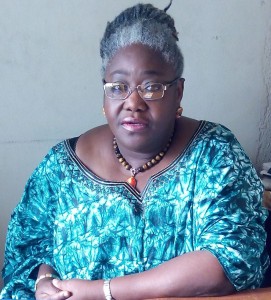For Canada-based Nigerian researcher, scholar and author, Bunmi Oyinsan, it is love at first sight for multicultural arena, JK Randle Centre for Yoruba Culture and History. She had known about the likes of the MUSON Centre, the National Museum, City Mall, City Hall and other iconic venues in the Onikan area of Lagos before she left Nigeria years ago. Of course, being an entrenched Lagosians and creative entrepreneur, she is familiar with the National Theatre, the Eko Hotel and Suites, among other popular venues too.
While she was away in Canada, however, the new mega arena came on stream. Built by the Lagos State Government, the JK Randle Centre is a contemporary heritage home for the preservation, celebration and advancement of Yoruba Culture and History. The project started by the Akinwunmi Ambode administration was completed by the current Babajide Sanwo-Olu government and it has become a big where-to-visit for tourists and researchers.
On Sunday, August 17, 2025, Oyinsan had the opportunity to behold and savour its aura. It was the venue for the unveiling of her new novel, A Ladder of Bones, around which an inspiring conversation was held. Before the programme anchored by culture promoter, Jahman Anikulapo, started, she, alongside her filmmaker husband, Soji Oyinsan, and other loved ones in her company, navigated the facilities at the centre. She could not hide the awe and love the monument inspired as she especially expressed delight and respite at the museum therein. Oyinsan then struck something close to a deal with the arena, through its manager, Qudus Onikeku, who is also a popular dancer, and one of the discussants at the book event.
A Ladder of Bones tells the stories of five young Africans grappling with personal histories and the legacy of violence. It is a response to Ellen Thorp’s Ladder of Bones, which glorifies colonialism as the British administered on Nigeria. Oyinsan’s position is that it is a fallacy to say that the intention behind the British Empire and other European empires was noble or altruistic. The colonialists did not do Africa a favour, she insisted.
She said, “In her (Thorp’s) version, she presents British colonisation in Nigeria as noble and altruistic. A lot of us know that that is nowhere near the truth. Of course, unless you are telling Badenoch. So, she presents colonisation as altruistic and the efforts of the missionaries and administrators as to civilise the land said to be devastated by tribal warfare, slave trading and other issues. Her position draws on the popular trope that the British Empire and other European empires did the fantastic work to get Africa developed. Beneath that paternalistic language and this so-called righteous intention lies the real history of brutal conquests that we were never taught in school, of cultural erasure and inter-generational trauma we are still grappling with. So, my novel deliberately signifies on Ellen Thorp’s title where ‘Ladder of Bones’ symbolises the sacrifices of the colonial agents, I reclaim it. I jam it to highlight the human cost of colonisation.”
A Ladder of Bones travels across Africa, the Caribbean, North America. And what I try to do is to explore the elements of colonisation across generations and continents. In many ways, this novel is a direct reaction to the so-called colonial history.
On the prominence of Enilolobo in ‘A Ladder f Bones’, Oyinsan noted it was not an emblem of gender identity. “I don’t know why. Seriously. But, actually, Enilolobo was the first inspiration. I mean, when I decided to talk back, to counter, you know, through the stories of human beings, history, Enilolobo was the first character that suggested herself to me. You know, which is why she’s the one who anchors the entire story.
“You know, that binary opposition is one thing, I mean, my doctorate and my master’s in gender and one of our recent methodologies is to avoid binary opposition. So I would never write a book that is all, you know, one-sided. Even with the Enilolobo story, what I do actually see her being captured, you know, from a village in Africa as a child and who led the people to come and capture her? the bale’s son.
- Katsina withholds 100 teachers’ salaries for absenteeism
- Tinubu names new NTA Director General
- Empty booth: Nigeria’s participation at TICAD 9 not about exhibition -Presidency
- Tinubu, Akpabio hail NDDC boss as Niger Delta pacesetter
- Odinkalu faults ex-NBA president, backs DSS screening for SANs
“So, that complicity, we have to face it. And I’m a believer that psychically we hurt ourselves in such a way that until we face that wound, we cannot move forward. So we must make amends. We must admit, just as we’re condemning, we must admit, you know, where we went wrong.
“We are surprised that we have politicians who are corrupt. As if that is new. Go back to our history. We had rulers; we had fantastic systems of government, but we had horrible people too. So, if we know all of that, we would probably be better prepared and know whom we want to trust with our votes. So, if we need to unearth, when I say go back to history, I do not mean to glorify it. It would be stupid of us to glorify everything about her or us. But we cannot be complicit or accept that everything about us was rubbish. Or that we had no contributions to development.”




